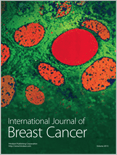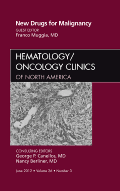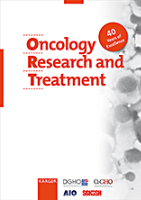
World Journal of Gastrointestinal Oncology
Scope & Guideline
Advancing knowledge at the intersection of gastroenterology and oncology.
Introduction
Aims and Scopes
- Molecular and Genetic Research:
The journal emphasizes studies that explore the molecular mechanisms underlying gastrointestinal cancers, including genetic mutations, non-coding RNAs, and signaling pathways that contribute to tumorigenesis and cancer progression. - Clinical and Therapeutic Strategies:
Research on novel therapeutic approaches, including immunotherapy, targeted therapies, and combination treatments, is a key focus, highlighting advancements in managing hepatocellular carcinoma, gastric cancer, and colorectal cancer. - Epidemiology and Risk Assessment:
The journal publishes epidemiological studies that assess risk factors for gastrointestinal cancers, including lifestyle, genetic predispositions, and environmental influences, to better understand their impact on patient outcomes. - Diagnostic Innovations:
A significant area of interest includes the development and validation of diagnostic tools and biomarkers, such as liquid biopsies and imaging techniques, to improve early detection and monitoring of gastrointestinal malignancies. - Microbiome and Cancer Interactions:
The role of the gut microbiome in cancer development and treatment response is increasingly recognized, with studies exploring its implications for gastrointestinal oncology. - Patient-Centered Research:
The journal also focuses on studies addressing the quality of life, psychological aspects, and socioeconomic factors affecting patients with gastrointestinal cancers, emphasizing a holistic approach to cancer care.
Trending and Emerging
- Immunotherapy and Personalized Medicine:
There is a significant increase in research focusing on immunotherapy, including checkpoint inhibitors and personalized medicine approaches, as these strategies show promise in improving patient outcomes. - Liquid Biopsy Techniques:
The use of liquid biopsy for early detection and monitoring of gastrointestinal cancers is gaining traction, with studies exploring its efficacy in identifying biomarkers and tracking treatment response. - Gut Microbiome Influence:
Emerging research is focusing on the gut microbiome's role in cancer development and treatment response, with studies investigating how microbiota composition can influence therapeutic outcomes. - Multimodal Treatment Strategies:
An increasing trend towards multimodal treatment approaches that combine surgery, chemotherapy, and targeted therapies is evident, reflecting a more holistic view of cancer management. - Health Disparities and Socioeconomic Factors:
Research addressing health disparities, particularly in access to care and outcomes among different populations, is becoming more prominent, emphasizing the importance of equitable cancer care. - Bioinformatics and Computational Biology:
The application of bioinformatics and computational approaches to analyze large datasets, including genomic and proteomic data, is on the rise, aiding in the identification of new therapeutic targets and biomarkers.
Declining or Waning
- Traditional Chemotherapy Approaches:
Research centered on conventional chemotherapy regimens for gastrointestinal cancers is becoming less prevalent, as newer treatment modalities, such as immunotherapy and targeted therapies, gain prominence. - Single-Agent Studies:
There is a noticeable decline in studies focusing solely on single-agent therapies, as the field moves towards more integrated approaches that combine multiple modalities for improved efficacy. - Basic Science without Clinical Application:
Basic research that does not directly translate to clinical application or patient outcomes is less frequently published, reflecting a growing emphasis on translational research that bridges laboratory findings with clinical practice. - Localized Treatments without Systemic Context:
Research focusing exclusively on localized treatment approaches, such as surgery, without considering systemic therapy or comprehensive care strategies, is diminishing, highlighting an evolving understanding of cancer management.
Similar Journals

World Journal of Clinical Oncology
Uniting Global Experts in Clinical OncologyWorld Journal of Clinical Oncology, published by BAISHIDENG PUBLISHING GROUP INC, stands as a vital resource in the realm of oncology, providing a dedicated platform for the dissemination of cutting-edge research and clinical advancements. With an ISSN of 2218-4333, this journal facilitates a comprehensive exploration of modern oncology challenges and breakthroughs, targeting researchers, healthcare professionals, and students alike. Although it operates under the traditional subscription model, the impactful nature of its content is reflected in its notable ranking of 60 out of 334 in the category of Medicine _ Oncology, placing it in the 82nd percentile among peer publications. Covering significant topics in clinical oncology from 2014 to 2018, the journal has been instrumental in addressing evolving oncology practices and patient care innovations. By publishing high-quality studies, it remains an essential tool for advancing knowledge and fostering collaboration within the global oncology community.

Therapeutic Advances in Gastroenterology
Exploring breakthroughs in digestive health.Therapeutic Advances in Gastroenterology, published by SAGE Publications Ltd, is a premier open access journal dedicated to the advancement of knowledge in the field of gastroenterology. Since its inception in 2008 and its transition to open access in 2018, the journal has consistently provided high-quality peer-reviewed research articles, review papers, and clinical studies that address the latest therapeutic advancements and challenges in gastrointestinal medicine. With an impressive impact factor and a 2023 Scopus ranking placing it in the Q1 quartile of gastroenterology journals, it stands as a leading platform for researchers, clinicians, and healthcare professionals. The journal’s commitment to disseminating impactful research has positioned it at the forefront of academic discourse, offering a vital resource for those devoted to improving patient outcomes in digestive health. The United Kingdom-based journal invites submissions that contribute to the understanding and treatment of gastrointestinal disorders, ensuring that cutting-edge findings reach a global audience.

Journal of Gastrointestinal Cancer
Advancing knowledge in the battle against gastrointestinal cancer.Journal of Gastrointestinal Cancer, published by SPRINGER, stands as a crucial resource in the fields of Gastroenterology and Oncology. With an ISSN of 1941-6628 and E-ISSN of 1941-6636, this journal has been committed to advancing the understanding and treatment of gastrointestinal cancers since its inception in 2007 and is poised to continue until 2024. The journal is recognized in the Q3 quartiles for both Gastroenterology and Oncology as of 2023, reflecting its relevance and contribution to these vital areas of medical research. Despite not being an open-access journal, it offers printed and online subscription options for access, ensuring that valuable research reaches the hands of practitioners, researchers, and students alike. With a focus on disseminating original research, reviews, and case studies, the Journal of Gastrointestinal Cancer plays a pivotal role in fostering ongoing education and discovery in the fight against cancer, promoting better patient outcomes worldwide. The journal is also indexed in Scopus, with notable rankings in the 50th and 45th percentiles for Gastroenterology and Oncology, respectively, further underscoring its scientific merit and credibility in the academic community.

Cancer Research Communications
Innovating cancer treatment through shared insights.Cancer Research Communications is an esteemed journal published by the American Association for Cancer Research, a leading organization in the field of oncology. This journal aims to advance knowledge in cancer research through the dissemination of high-quality, peer-reviewed articles that cover a wide range of topics related to cancer biology, treatment modalities, and prevention strategies. As an open-access journal, Cancer Research Communications ensures that vital research findings are accessible to a global audience, promoting collaboration and innovation within the scientific community. The journal serves as a crucial platform for researchers, professionals, and students to share their insights and foster the exchange of effective cancer therapies and methodologies. With a commitment to excellence, it plays a significant role in shaping the future of cancer research and therapeutic development.

BRITISH JOURNAL OF CANCER
Connecting Researchers and Clinicians in the Fight Against Cancer.The British Journal of Cancer, published by SpringerNature, stands as a preeminent resource in the fields of Cancer Research and Oncology, with a distinguished history of publication dating back to 1947. With its Q1 rank in both categories for 2023, this journal is among the top-tier publications, offering cutting-edge research and insights into the biology, etiology, and treatment of cancer. The journal’s rigorous peer-review process ensures that readers are presented with high-quality studies that contribute to the advancement of cancer knowledge and clinical practice. Operating from the United Kingdom, it has garnered a notable impact factor and ranks impressively within Scopus, making it an essential publication for researchers, healthcare professionals, and students who are dedicated to understanding cancer's complexities. Access to the journal's articles is available in traditional formats, providing a versatile platform for disseminating pivotal research. As we move towards a future where cancer treatment and prevention remain crucial, the British Journal of Cancer continues to play a vital role in shaping the dialogue and discoveries within the oncology community.

International Journal of Breast Cancer
Empowering knowledge, transforming breast cancer treatment.The International Journal of Breast Cancer is a premier academic platform dedicated to advancing the field of breast cancer research and treatment. Published by HINDAWI LTD, this journal embraces an Open Access model since 2011, ensuring that cutting-edge research is readily accessible to all, facilitating the dissemination of knowledge across the global scientific community. With its ISSN 2090-3170 and E-ISSN 2090-3189, the journal caters to a diverse audience comprising researchers, clinicians, and students engaged in oncology and pharmacology. The journal has consistently demonstrated its relevance, classified in the Q4 quartile for Cancer Research and the Q3 quartile for both Oncology and Pharmacology in the latest rankings. It currently ranks #151/272 in the Medicine & Pharmacology category and #232/404 in Medicine & Oncology according to Scopus, showcasing its adaptive role in an evolving field. Commencing in 2013 and continuing through to 2024, the journal is positioned to be an essential resource, addressing critical topics and fostering innovative solutions for breast cancer challenges.

HEMATOLOGY-ONCOLOGY CLINICS OF NORTH AMERICA
Connecting Researchers and Clinicians for Better OutcomesHEMATOLOGY-ONCOLOGY CLINICS OF NORTH AMERICA, published by W B SAUNDERS CO-ELSEVIER INC, is a premier journal dedicated to advancing the fields of hematology and oncology. With its ISSN 0889-8588 and E-ISSN 1558-1977, this esteemed publication has been a cornerstone of clinical scholarship since its inception in 1987, providing comprehensive annual updates that bridge the gap between research and clinical practice. Known for its rigorous editorial standards and impactful contributions, the journal holds a respectable Q2 quartile classification in both hematology and oncology as of 2023, ranking it in the 50th percentile among its peers. Although it is not an open-access journal, the content is accessible to institutions and professionals worldwide. As the scope of the journal expands through 2024, it continues to attract an audience of researchers, healthcare professionals, and students who seek to stay informed on the latest advancements, treatment modalities, and groundbreaking studies in the fields of hematology and oncology.

Molecular Cancer
Championing high-quality research for impactful outcomes.Molecular Cancer, published by BMC, stands as a premier open access journal dedicated to advancing our understanding of cancer biology, treatment, and prevention since its inception in 2002. With an impressive Q1 ranking in the domains of Cancer Research, Molecular Medicine, and Oncology, this journal occupies a significant position in the academic landscape, emphasizing high-quality research that influences clinical practices and future studies. The journal is indexed in leading databases with exceptional Scopus ranks, reflecting its rigorous peer-review process and impactful contributions to the field, where it ranks in the top 2-3 positions across various relevant categories. Based in the United Kingdom, Molecular Cancer offers researchers worldwide a valuable platform for disseminating innovative findings that drive the biomedical community forward. The journal's open access model ensures that groundbreaking research is freely accessible, fostering collaboration and knowledge sharing among professionals, students, and academics alike. Explore cutting-edge developments in cancer research through Molecular Cancer and join a community committed to improving patient outcomes and advancing scientific discovery.

Oncology Research and Treatment
Empowering the future of oncology with cutting-edge insights.Oncology Research and Treatment, published by KARGER, is a highly regarded academic journal dedicated to advancing the field of oncology through rigorous research and clinical insights. With a history spanning from 1978 to 1997 and continuing from 2013 to 2024, this journal provides a vital platform for researchers and professionals in cancer research, hematology, and related disciplines. Though currently listed in the Q3 tier of 2023 for Cancer Research, Hematology, and Oncology, its growing readership and open access policy enhance its visibility and impact within the scientific community. Based in Switzerland, the journal features diverse access options, reflecting the global importance of oncology research. With a focus on innovative treatments and the latest methodologies, Oncology Research and Treatment plays a crucial role in fostering collaboration and dialogue among researchers, professionals, and students alike, helping to shape the future of cancer care and management.

PATHOLOGY & ONCOLOGY RESEARCH
Unveiling Insights in Pathology and OncologyPATHOLOGY & ONCOLOGY RESEARCH is a prominent international journal published by FRONTIERS MEDIA SA, dedicated to advancing the fields of pathology and oncology. Operating from the Netherlands, with a distinguished address in Switzerland, this journal plays a crucial role in disseminating significant research findings and insights from 1995 to 2024. With an ISSN of 1219-4956 and E-ISSN of 1532-2807, it is indexed in well-respected databases, facilitating access to a global audience of researchers and practitioners. Notably, the journal ranks in the Q3 category for Cancer Research (2023), while being recognized in the Q2 categories for both Medicine (Miscellaneous), Oncology, and Pathology and Forensic Medicine, reflecting its authoritative status in these vital disciplines. Scopus rankings further highlight its influence, with notable percentiles across various fields. Although it follows a subscription model, the journal remains committed to publishing high-quality, peer-reviewed research that bridges conceptual gaps and encourages further exploration in oncology and diagnostic pathology, making it an indispensable resource for academics and professionals engaged in these critical areas of medicine.